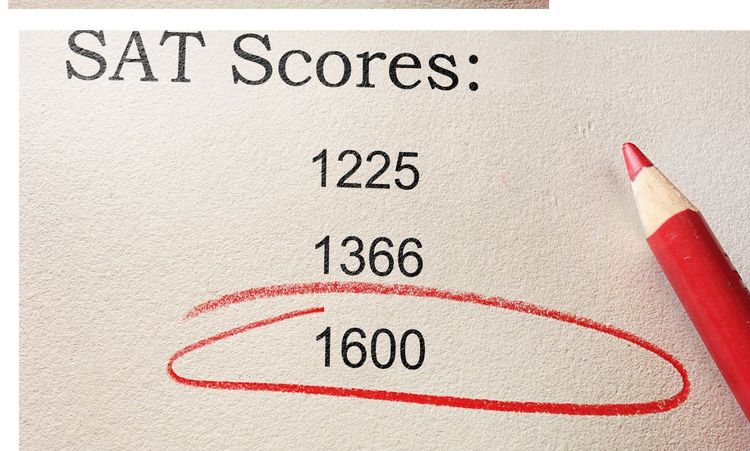Let's face it—preparing for a test can feel like climbing Mount Everest in flip-flops. You start with good intentions, a few neatly highlighted notes, and maybe a playlist of "focus" music, but somewhere between your third cup of coffee and page 42 of your textbook, motivation starts fading.
The truth is, test preparation isn't just about memorizing facts. It's a strategy game that combines psychology, discipline, and thoughtful planning.
In this article, we'll explore the strategies for test preparation—from identifying your learning style to managing time, handling anxiety, and using proven study methods that actually work. By the end, you'll have a roadmap not only to survive exam season but to conquer it like a pro.
Understanding Your Learning Foundation and Style
Every successful test strategy begins with understanding yourself as a learner. It’s like knowing your car before a long road trip—you need to understand how it runs best.
Some students can absorb information from visuals, others through repetition, and some by teaching what they've learned.
Psychologists have found that students who align their study techniques with their learning style score significantly higher than those who don't. According to a 2019 study in the Educational Psychology Journal, learners who adjusted their strategies based on how they process information improved retention by up to 43%.
So before opening another book, ask yourself: How do I learn best?
Identifying Your Unique Learning Style
You might be:
- A visual learner: You understand concepts better through charts, diagrams, and infographics.
- An auditory learner: You grasp lessons more effectively when listening to podcasts, lectures, or reading aloud.
- A kinesthetic learner: You remember information by doing—writing flashcards, solving problems, or moving while studying.
Example: Maria, a college student struggling with organic chemistry, kept rereading her notes but nothing stuck. When she started drawing chemical structures (visual learning) and explaining them aloud to her roommate (auditory reinforcement), her test scores jumped from 65% to 88% in one semester.
The key isn’t to force someone else’s method—it’s to customize your approach around what works for you.
Strategic Study Planning and Time Management
Creating a Comprehensive Study Plan
A study plan isn’t about cramming every subject into your day—it’s about pacing.
Start by evaluating how many days you have until the test and divide your syllabus into daily, achievable chunks.
For example, if you have 21 days before your biology exam:
- Day 1–5: Cell Biology
- Day 6–10: Genetics
- Day 11–18: Ecology
- Day 19–21: Revision and mock tests
Remember: Consistency beats intensity. One hour of focused study daily for three weeks is far more effective than ten hours of panic the night before.
Effective Time Management
Neil Patel says, “Time management isn’t about squeezing every minute; it’s about maximizing what matters.”
Try the Pomodoro Technique—study for 25 minutes, then take a 5-minute break. After four sessions, take a longer 15–30-minute break.
This method reduces burnout and keeps your brain sharp. Apps like Forest or Focus Booster can help maintain discipline while tracking productivity.
Effective Study Methods for Deeper Understanding and Retention
Active Reading and Note-Taking Strategies
Don’t just read—engage with your material. Highlight key terms, summarize in your own words, and jot notes in the margins.
Use the SQ3R method:
- Survey
- Question
- Read
- Recite
- Review
For instance, when studying history, ask: Why did this event happen? or How did this decision shape future alliances?
Color-coded notes also enhance memory recall by up to 39%, according to the University of Maryland.
Engaging with Practice Questions and Past Exams
Practice like you play. Using past papers simulates real exam conditions.
A Journal of Experimental Psychology study showed that students who practiced with old exams improved scores by an average of 20%.
After each session, analyze your mistakes—were they due to time, misunderstanding, or missed details? This reflection builds confidence and precision.
Mastering Different Test Formats and Question Types
Strategies for Multiple-Choice Questions (MCQs)
MCQs test precision and attention to detail.
- Read the question first before the options.
- Eliminate obvious wrong answers to narrow choices.
- If unsure, guess (when there’s no penalty). A random guess gives you a 25% chance of being correct!
Conquering Test Anxiety and Nurturing Well-being
Prioritizing Physical Health
Your brain performs best when your body is in top shape.
Studies from Harvard Medical School show that students who sleep 7–8 hours and exercise regularly score higher.
Eat foods rich in:
- Omega-3s: salmon, walnuts
- Antioxidants: berries
- Slow carbs: oats
Try deep breathing—two minutes can lower cortisol levels by 30%, calming your nerves instantly.
Test Day Execution
Strategic Test-Taking During the Exam
- Scan the paper to spot easy questions first.
- Manage time by dividing total minutes by question count.
- Move on from tricky questions—come back later.
- Leave five minutes to review for errors.
Those last moments often make the difference between an A and a B.
Post-Test Analysis
Learn from Your Mistakes
After results, review your answers. Ask:
- Was this due to misunderstanding or lack of knowledge?
- Was I short on time?
Use these insights to refine future strategies.
Seek Clarification and Feedback
Ask instructors for explanations. Curiosity signals engagement—and feedback turns failure into fuel.
Common Challenges: Overcoming Stress and Procrastination
Procrastination and stress are the twin villains of test prep.
Start small—set micro-goals like reading two pages or answering five questions.
To manage stress:
- Set realistic expectations
- Focus on progress, not perfection
- Use meditation, short walks, or power naps to recharge
Remember: Your value isn’t defined by grades. Tests measure preparation, not intelligence.
Conclusion
So, what are the strategies for test preparation?
Success isn’t about cramming—it’s about:
- Understanding yourself
- Planning smartly
- Studying actively
- Maintaining mental and physical balance
Combine strategic planning with emotional resilience, and you’ll not only prepare for tests—you’ll prepare for life.
When exam season arrives, trust your plan, your process, and yourself.




